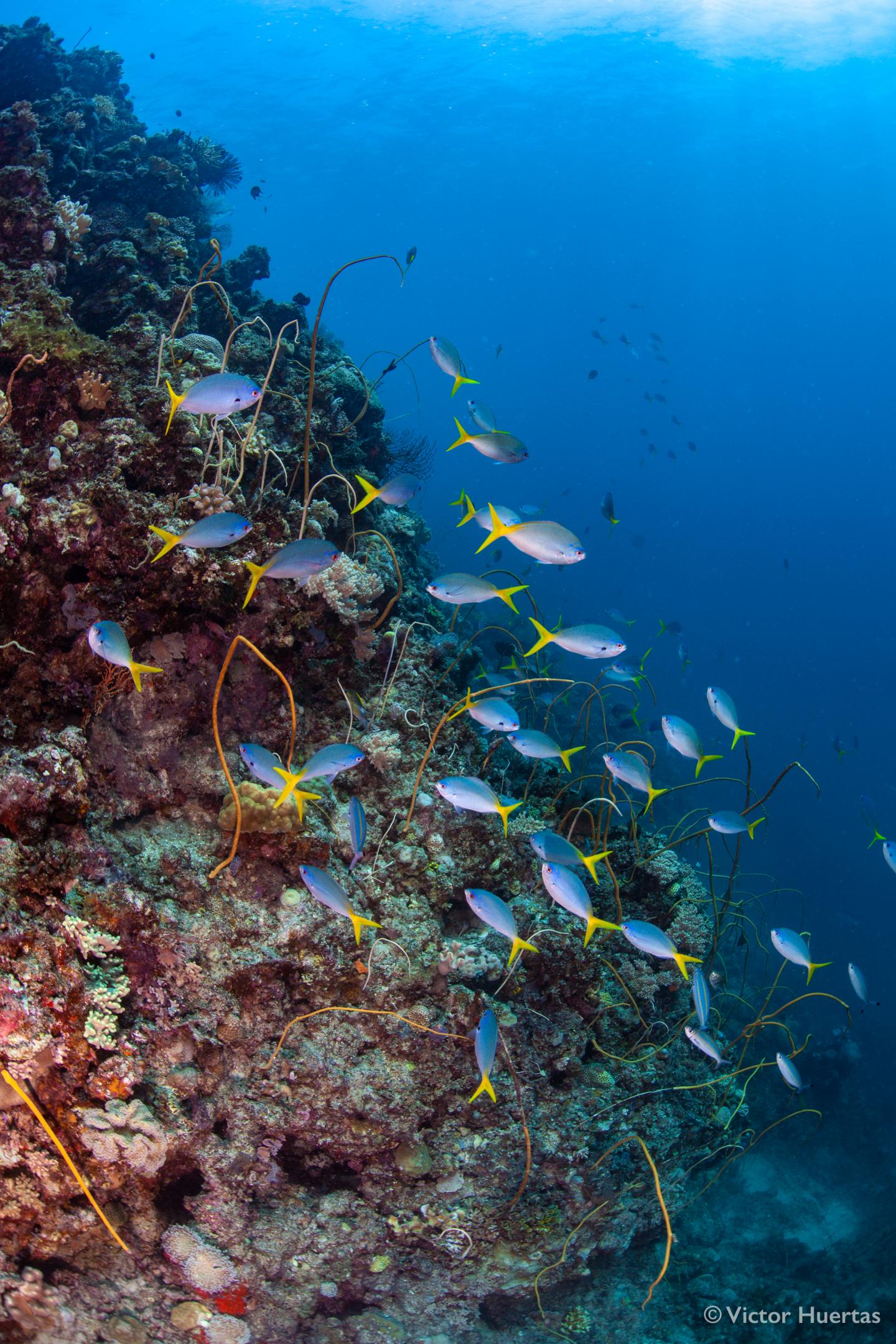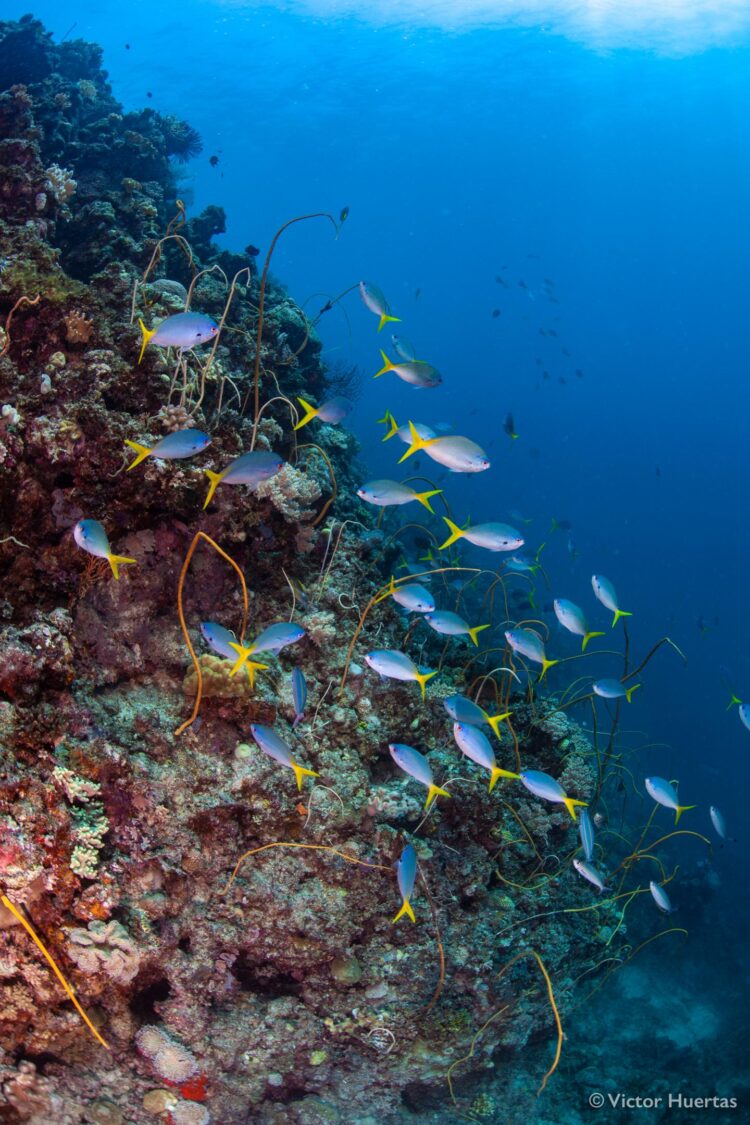
Credit: Victor Huertas.
An international group of scientists is predicting markedly different outcomes for different species of coral reef fishes under climate change – and have made substantial progress on picking the ‘winners and losers’.
Associate Professor Jodie Rummer from James Cook University’s ARC Centre of Excellence for Coral Reef Studies co-authored a study that exposed two species of coral reef fishes to elevated temperatures and measured their responses over time.
“We collected five-lined cardinalfish and redbelly yellowtail fusilier from the Great Barrier Reef, and under controlled conditions in the laboratory at JCU, slowly raised the temperature in their aquaria by 3.0?C.
“This temperature range spans the average summer temperatures experienced in the northern Great Barrier Reef. We then routinely measured 18 physiological traits in both species over five weeks,” she said.
The Intergovernmental Panel on Climate Change predicts sea surface temperatures are expected to rise by 2.0-4.8?C by the end of the 21st century, but this is also resulting in the increasing frequency and severity of extreme heatwaves experienced worldwide.
“Over just a few days, these heatwaves can increase water temperatures by as much as 5?C above seasonal average temperatures, and such heatwaves can last for several weeks,” said Dr Rummer.
She said the fusilier exhibited rapid responses to thermal stress, with nearly immediate changes detected in gill morphology and blood parameters. But the cardinalfish response was delayed, and they seemed far less able to adjust to the elevated temperatures.
Importantly, the team identified seven parameters across both species that may be useful as biomarkers for evaluating how fast and to what extent coral reef fishes can cope with elevated temperatures.
“Our findings greatly improve our current understanding of the physiological responses associated with ongoing thermal threats and disturbances, including which species may be most at risk,” said co-author Assistant Research Professor Jacob Johansen, from the Hawaii Institute of Marine Biology.
The researchers said the study is timely, given the rapid decline of tropical coral reefs worldwide, including the unprecedented and repeated mass coral bleaching and mortality events on the Great Barrier Reef in 2016, 2017, and 2020 – all caused by summer heatwaves.
“Climate change winners and losers will ultimately be determined by their capacity to compensate for thermal stress over both the short term of days, weeks, and months, but also over the longer term of years, decades, and centuries,” said co-author Assistant Professor Lauren Nadler from Nova Southeastern University in the United States.
“Our findings are immensely useful for scientists but also for managers, conservation planners, and policy makers charged with protecting these important ecosystems, not to mention communities who rely on coral reef fishes for food, culture, jobs, and livelihoods.
“Collectively, we need to have an indication of which species are going to survive and which will be most vulnerable to climate change so we can take action. The decisions we make today will determine what coral reefs look like tomorrow,” Dr Rummer said.
###
Contacts:
Associate Professor Jodie Rummer. (Townsville, AUSTRALIA)
M: 0439 166 171
E: [email protected]
Assistant Professor Jacob Johansen (Manoa, Hawaii USA)
M: +1 (808) 236 7478
E: [email protected]
Assistant Professor Lauren Nadler (Fort Lauderdale, Florida USA)
M: +1 (954) 262 3234
E: [email protected]
Paper:
Johansen JL, Nadler LE, Habary A, Bowden AJ, Rummer JL. 2021. ‘Thermal acclimation of tropical coral reef fishes to global heat waves’. eLife. DOI: https:/
Media Contact
Melissa Lyne
[email protected]
Related Journal Article
http://dx.





